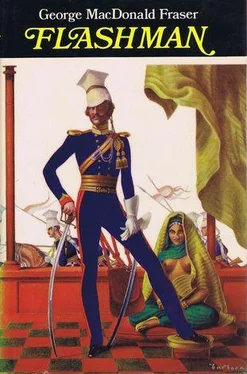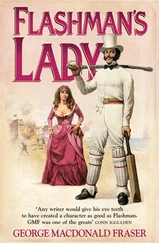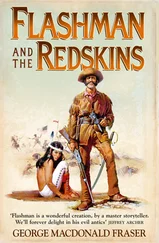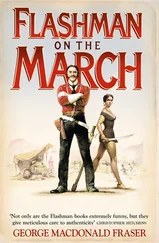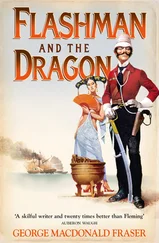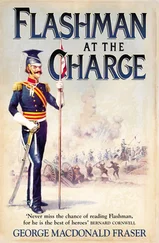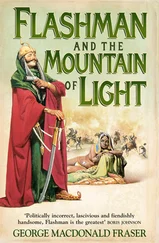"How would he do, do you think, if there was any trouble with the Afghans?" says Burnes later. "Well, let’s hope we don’t have to find out."
In the next few weeks, while I was in fairly constant attendance on Elphy, I found myself sharing his hope. It was not just that Elphy was too old and feeble to be much use as an active leader: he was under McNaghten’s thumb from the start, and since McNaghten was determined to believe that all was well, Elphy had to believe it, too. And neither of them got on with Shelton, a rude boor of a man who was Elphy’s second-in-command, and this dissension at the top made for uneasiness and mistrust further down. If that was not bad enough, the situation of the army made it worse. The cantonment was a poor place for a garrison to be, without proper defences, with its principal stores outside its walls, and some of the principal officers -Burnes himself, for example - quartered two miles away in Kabul City. But if protests were made to McNaghten -and they were, especially by active men like Broadfoot - they were dismissed as "croaking", and it was pointed out sharply that the army was unlikely to be called on to fight anyway. When this kind of talk gets abroad, there is no confidence, and the soldiers get slack. Which is dangerous anywhere, but especially in a strange country where the natives are unpredictable.
Of course, Elphy pottering about the cantonment and McNaghten with his nose deep in correspondence with Calcutta, saw nothing to indicate that the peaceful situation was an uneasy one. Nor did most of the army, who were ignorantly contemptuous of the Afghans, and had treated the Kabul expedition as a holiday from the first. But some of us did.
A few weeks after Elphy’s arrival Burnes obtained my detachment from the staff because he wanted to make use of my Pushtu and my interest in the country. "Oh dear," Elphy complained, "Sir Alexander is so busy about every-thing. He takes my aides away, even, as though I could readily spare them. But there is so much to do, and I am not well enough to be up to it." But I was not sorry to go; being about Elphy was like being an orderly in a medical ward.
Burnes was keen that I should get about and see as much of the country as I could, improve my command of the language, and become known to as many influential Afghans as possible. He gave me a number of little tasks like the Mogala one - it was carrying messages, really, but it was valuable experience - and I travelled to towns and villages about Kabul, meeting Douranis and Kohistanis and Baruzkis and so on, and "getting the feel of the place", as Burnes put it.
"Soldiering’s all very well," he told me, "but the men who make or break the army in a foreign country are we politicals. We meet the men who count, and get to know 'em, and sniff the wind; we’re the eyes and ears - aye, and the tongues. Without us the military are blind, deaf, and dumb."
So although boors like Shelton sneered at "young pups gadding about the hills playing at niggers", I listened to Burnes and sniffed the wind. I took Ilderim with me a good deal, and sometimes his Gilzais, too, and they taught me some of the lore of the hills, and the ways of the people - who mattered, and what tribes were better to deal with, and why, and how the Kohistanis were more friendly disposed to us than the Abizai were, and which families were at feud with each other, and how the feeling ran about the Persians and the Russians, and where the best horses could be obtained, and how millet was grown and harvested: all the trivial information which is the small change of a country’s life. I don’t pretend that I became an expert in a few weeks, or that I ever "knew" Afghanistan, but I picked up a little here and there, and began to realise that those who studied the country only from the cantonment at Kabul knew no more about it than you would learn about a strange house if you stayed in one room of it all the time.
But for anyone with eyes to look beyond Kabul the signs were plain to see. There was mischief brewing in the hills, among the wild tribes who didn’t want Shah Sujah for their king, and hated the British bayonets that protected him in his isolation in the Bala Hissar fortress. Rumours grew that Akbar Khan, son of old Dost Mo-hammed whom we had deposed, had come down out of the Hindu Kush at last and was gathering support among the chiefs; he was the darling of the warrior clans, they said, and presently he would sweep down on Kabul with his hordes, fling Sujah from his throne, and either drive the feringhees back to India or slaughter them all in their cantonment.
It was easy, if you were McNaghten, to scoff at such rumours from your pleasantly furnished office in Kabul; it was something else again to be up on the ridges beyond Jugdulluk or down towards Ghuznee and hear of councils called and messengers riding, of armed assemblies harangued by holy men and signal fires lit along the passes. The covert smiles, the ready assurances, the sight of swaggering Ghazis, armed to the teeth and with nothing apparent to do, the growing sense of unease - it used to make the hairs crawl on my neck.
For don’t mistake me, I did not like this work. Riding with my Gilzais and young Ilderim, I was made welcome enough, and they were infallible eyes and ears - for having eaten the Queen’s salt they were ready to serve her against their own folk if need be - but it was dangerous for all that. Even in native dress, I would meet black looks and veiled threats in some places and hear the British mocked and Akbar’s name acclaimed. As a friend of the Gilzais and a slight celebrity - Ilderim lost no opportunity of announcing me as "Bloody Lance" - I was tolerated, but I knew the toleration might snap at any moment. At first I went about in a continual funk, but after a while one became fatalistic; possibly it came from dealing with people who believe that every man’s fortune is unchangeably written on his forehead.
So the clouds began to gather on the mountains, and in Kabul the British army played cricket and Elphinstone and McNaghten wrote letters to each other remarking how tranquil everything was. The summer wore on, the sentries drowsed in the stifling heat of the cantonment, Burnes yawned and listened idly to my reports, dined me royally and took me off whoring in the bazaar - and one bright day McNaghten got a letter from Calcutta complaining at the cost of keeping our army in Kabul, and looked about for economies to make.
It was unfortunate that he happened, about this time, to | be awaiting his promotion and transfer to the Governor-ship of Bombay; I think the knowledge that he was leaving may have made him careless. At any rate, seeking means of reducing expenditure, he recalled the idea which had appalled General Nott, and decided to cut the Gilzais' subsidy.
I had just come back to Kabul from a visit to Kandahar garrison, and learned that the Gilzai chiefs had been summoned and told that instead of 8,000 rupees a year for keeping the passes open, they were now to receive 5,000. Ilderim’s fine young face fell when he heard it, and he said: "There will be trouble, Flashman huzoor. He would have been better offering pork to a Ghazi than cheat the Gilzais of their money."
He was right, of course: he knew his own people. The Gilzai chiefs smiled cheerfully when McNaghten delivered his decision, bade him good afternoon, and rode quietly out of Kabul - and three days later the munitions convoy from Peshawar was cut to ribbons in the Khoord-Kabul pass by a force of yelling Gilzais and Ghazis who looted the caravan, butchered the drivers, and made off with a couple of tons of powder and ball.
McNaghten was most irritated, but not concerned. With Bombay beckoning he was not going to alarm Calcutta over a skirmish, as he called it.
"The Gilzais must be given a drubbing for kicking up this kind of row," said he, and hit on another bright idea: he would cut down expense by sending a couple of battalions back to India, and they could take a swipe at the Gilzais on their way home. Two birds with one stone. The only trouble was that his two battalions had to fight .. damned nearly every inch of the way as far as Gandamack, with the Gilzais potting at them from behind rocks and sweeping down in sudden cavalry charges. This was bad enough, but what made it worse was that our troops fought badly. Even under the command of General Sale -the tall, handsome "Fighting Bob" who used to invite his men to shoot him when they felt mutinous - clearing the passes was a slow, costly process.
Читать дальше
Конец ознакомительного отрывка
Купить книгу
